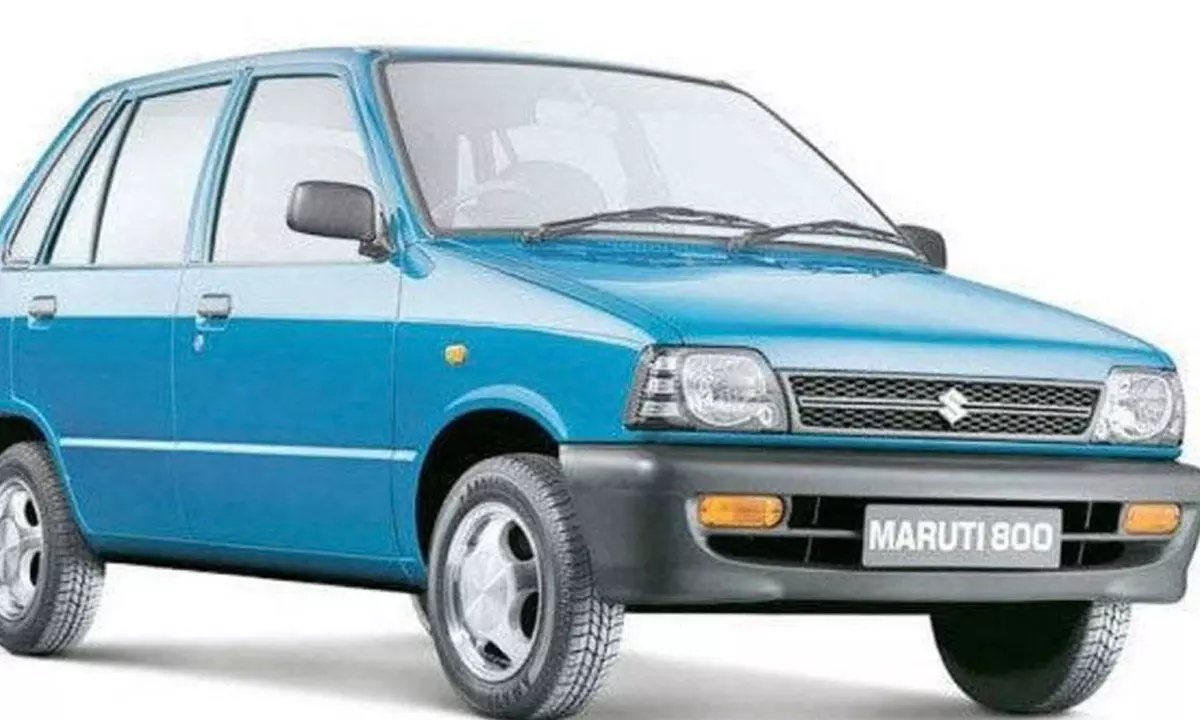Forty years on, memories of M800 linger as the car that altered personal mobility in India
Share :

At the brand centre of Maruti Suzuki India's headquarters in South Delhi, among the many modern vehicles on display a tiny 40-year-old white car occupies a prominent space.
New Delhi: At the brand centre of Maruti Suzuki India's headquarters in South Delhi, among the many modern vehicles on display a tiny 40-year-old white car occupies a prominent space.
It is no ordinary car but the first customer unit of the popularly known 'Maruti 800' or the M800 model that revolutionised personal mobility in India. Launched on December 14, 1983 when India was still under the licence raj, M800 was also a witness as well a beneficiary of the economic liberalisation when the country's economy was opened up in 1991, thus serving as a link between the old and new journey that India undertook. Lovingly referred to as the 'people's car', M800 shook up then sleepy passenger vehicles market in India, challenging the duopoly of Hindustan Motor's Ambassador car and Premier Padmini. It soon became the symbol of aspiration for millions of middle class Indians.
From the handing over of the keys of the first unit to Harpal Singh, who won the chance to become the first owner of M800 through a lucky draw in 1983, the model went on to clock a cumulative 1 lakh units production in 1986-87. Equipped with far better technology from Suzuki compared to the other products that were available in the market then, M800 was accepted well among Indian customers and soon crossed 5 lakh units cumulative production milestone in 1992-93. It then doubled it to 10 lakh units by 1996-97 and crossed the 15 lakh units milestone in 1999-2000. The small car went from strength to strength and M800 production crossed the cumulative mark of 20 lakh units in 2002-03 and and 25 lakh units in 2005-06. It reigned as the numero uno 'people's car' despite others like Tata Nano attempting to challenge it later on. However, nothing lasts forever.
With newer technologies coming in, safety and emission norms becoming stringent, Maruti Suzuki India (MSI) had to take the hard call of driving into the sunset what was once its breadwinner. From January 18, 2014 the company stopped production of the M800 completely. By then, the M800 clocked a cumulative production of 29.2 lakh units. Before that, MSI had stopped selling Maruti 800 in 13 cities, including Hyderabad, Bengaluru, Kanpur, and Pune since April 2010. The model sold a total of 26.8 lakh units in the domestic market and exported 2.4 lakh units during its eventful journey.
The M800 not only altered the course of personal mobility in India but was also the cornerstone on which the then Maruti Udyog Ltd, a public sector enterprise, went on to become a dominant force in the automotive industry proving everyone wrong from what started out as an "accident" doomed to fail. As MSI Chairman RC Bhargava once said at a time when the existing car manufacturers Hindustan Motors and Premier were not even allowed to import technology, a public sector company was founded in such a low priority area and was asked to bring in foreign equity. "Everybody thought or believed that this was a political project which in a way it was. The same belief was known to all the carmakers the world over.
When initially the government and then later Maruti approached carmakers for collaboration and become joint venture partners, nobody was willing to put in 40 per cent equity in cash," he had told PTI in an interview last year. The global manufacturers were offering only second-hand equipment, dyes and fixtures but Suzuki was the only company that was willing to invest, for which Osamu Suzuki was also severely criticised in Japan, Bhargava said. In that backdrop, the success of M800 helped Maruti to successfully traverse a journey that was not a smooth one by any means but was full of challenges. The mention of M800 continues to evoke nostalgia among many to this day.



